Request a Call from our Workforce Experts
What is Employee Engagement?
Employee engagement is a worker’s emotional commitment toward their organization and its goals. It is about how invested employees feel at their workplace, how connected they are to their colleagues, and their alignment with the overall company objectives. Organizations can apply various employee engagement strategies to promote a more engaged workforce. However, before finding an appropriate approach for your company, try to understand the significance of employee engagement.
Why is Employee Engagement Important?
Employee engagement is vital to the success of any organization for the following reasons:
Enhances Productivity
Engaged employees are often more productive than their disengaged counterparts. When your staff feels connected to their work and understands how it contributes to the overall goals of the organization, they are more likely to put in extra effort and go beyond their job requirements. This increased productivity directly impacts the bottom line of the organization.
Improves Employee Retention
Employee engagement plays a critical role in employee retention. Engaged workers are less likely to seek opportunities elsewhere as they have higher job satisfaction levels. They feel valued, appreciated, and supported by their organization. Consequently, this reduces turnover rates, saving organizations valuable time and resources spent on recruitment and training.
Boosts Customer Satisfaction
Adopting different employee engagement strategies goes beyond making your team feel valued. It also impacts customer satisfaction directly, as content employees are more likely to go the extra mile to ensure clients receive excellent services. Their commitment to work can help you build a happy and loyal base of customers. Your brand image and reputation can also be positively impacted since satisfied buyers can provide positive word-of-mouth marketing and recommend your products or services to others.
Request a Call from our Employee Engagement Experts
GATHERING THE DATA
How to Improve Employee Engagement
Employee engagement scores have been flat for years, yet employee turnover has only increased. These once a year studies to measure employee engagement aren’t helping inform meaningful action, especially since they can’t capture the spectrum of the employee experience.
What Are Employee Engagement Studies?
The key to accurately measuring employee engagement is understanding it is not a one-way street. The term Employee Engagement Studies suggests that employees are responsible for engaging with their work, but the reality is that employers share the responsibility of making sure their employees are engaged. When engagement is shared between the employer and employee, engagement increases. That is why we categorize it as EmployeR Engagement. Call us today if you are looking to create the organizational climate wherein employees choose to be engaged throughout their time with the organization!
Creating Effective Employee Engagement Strategies
Now that you understand the importance of employee engagement let’s explore how to create effective strategies to boost it:
Promote Honest Feedback
Regular and open communication is key to fostering employee engagement. Create a culture where employees feel comfortable giving and receiving feedback, both from their superiors and peers. Consistent check-ins or performance reviews can also help provide constructive feedback and address any concerns.
Take Employee Surveys
Routinely surveying employees can give valuable insights into their engagement levels and identify areas for improvement. A comprehensive survey may include questions that measure satisfaction, motivation, and wellness. You can use the feedback from the research to make data-driven decisions and implement changes that align with the needs and expectations of your workforce.
Promote Your Organization’s Core Values
When your employees understand and align with the core values of your organization, they are more likely to feel a sense of purpose in their work. Regularly communicate and reinforce these values through team meetings, internal communications, or recognition programs. This promotes a strong organizational culture where employees can connect with the mission and vision of the company.
Provide Opportunities for Skill Development
Employees value growth and development in their careers. Offer opportunities for training, workshops, mentorship programs, or sponsorship schemes that contribute to continuous learning and skill development. When your staff feels invested in their organizations, they are less likely to leave, as they see potential for growth and advancement within the company.
Implement Employee Engagement Programs
Consider implementing employee engagement programs such as team-building activities, wellness initiatives, or social events. They promote collaboration, build relationships among employees, and create a positive work environment. Such programs encourage a sense of community and belonging within the organization.
How Our Employee Engagement Studies Help
Creating high EmployeR Engagement starts by simply listening to your employees across their timeline with the organization. Using Work Institute’s unique Voice of the Employee approach, employees provide/share what is most important in creating the conditions where they will most likely be engaged from the recruitment process all the way through their exit.
Our EmployeR Engagement model is different because we ask the critical question “Why?” to corresponding survey number rankings to establish employee engagement metrics. It is difficult to act on a rating, but you can act on a reason. The only way to get to a reason is to ask why.
In the EmployeR Engagement model, you are consistently gathering feedback around the recruiting process, training & onboarding, first year, and high potential stay interviews, quick quantitative pulse surveys and high-quality exit interviews.
Using these various data points and employee engagement metrics, your workforce expert will partner with you on an on-going basis to create specific short and long-term action plans to celebrate strengths and improve in areas of opportunity.


Real-World Case Study
To reduce costs associated with disengagement and turnover, Renal Advantage, Inc. (RAI) conducted a baseline EmployER Engagement survey with their entire employee population. They needed to know the reasons employees were disengaged and quitting. They focused on the key drivers of organization, manager, team and job.
Work Institute surveyed the entire workforce to gather baseline data and goals were set based on the initial results. The Human Resources team, with the help of Work Institute consultants, evaluated interventions as part of an evidence-based action planning initiative using data obtained from the interviews.
This process was followed over the next four years and the results were impressive.
- The number of employees that rated their organization as ‘excellent’ increased by 22%
- The number of employees rating their manager as ‘excellent’ improved by 10%
- The number of employees with an intent to leave within the first year decreased from 22% to 16%
In an industry where disengagement is high and employee turnover seems even higher, they reduced employee turnover by 75% and the costs of service delivery was the lowest in the industry.
Definition of Voice of Employee
The Voice of Employee (VoE) is a concept that holds immense gravity when discussing employee engagement. It refers to the collective input, opinions, and feedback of workers within an organization.
The VoE represents the authentic, unfiltered perspectives of the workforce regarding various aspects of their employment, including workplace culture, leadership, job satisfaction, and overall well-being. Organizations can gather it through surveys, interviews, suggestion boxes, and informal conversations. The data collected helps tailor engagement strategies to address specific needs and preferences, ultimately cultivating a more satisfied workforce.
How Understanding Employee Engagement Helps
Companies can create a thriving workplace by understanding what employee engagement is, recognizing its importance, and implementing different strategies to incorporate it. If you’re ready to transform your organization into a hub of engaged, motivated, and satisfied employees, Work Institute can help. Since 2000, we have been assisting businesses to attract and retain top talent, enhance performance, and mitigate risk. We tailor programs to your needs, elevating employee satisfaction, reducing costs, and fostering profitable growth. Contact us today to get started on the path to improved employee engagement and a flourishing workplace culture.

